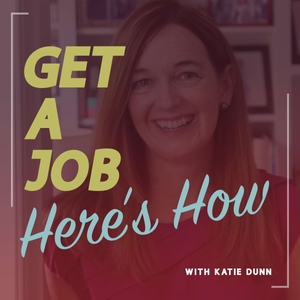
4-Day Work Week—Yay or Nay?
05/22/23 • 43 min
A few episodes back, we talked about hybrid work and the growing strength that employees have in shaping the how and when of their work. This month, we’re putting a spotlight on a trend that is picking up steam—the idea of a four-day work week. This experimentation is revealing pros and cons when implemented in countries such as Japan, Spain, the UK and South Africa. While a four-day work week may help boost employee productivity and mental health, not every worker can participate. So who chooses the when and how to introduce a four-day work week?
To answer this question, we turn to Stela Lupushor, a thought leader, speaker, educator and futurist who is on a mission to humanize the workplace. She advises startups, venture funds and mature enterprises on the use of design thinking, technology, analytics and future thinking to create inclusive workplaces. Stela teaches at NYU, imparting her knowledge on to the next generation of HR leaders. Previously, Stela transformed workplace practices at the intersection of technology, analytics and HR at organizations such as Fidelity Investments, TIAA, IBM, Price Waterhouse and PwC Consulting and their clients. She is the co-author of "Humanizing Human Capital: Invest In Your People for Optimal Business Returns” and "Humans At Work: The Art and Practice of Creating the Hybrid Workplace.”
Read the transcript @https://bit.ly/4kLCdkP
Learn more about UC Berkeley Extension @https://bit.ly/3BMnLUv
A few episodes back, we talked about hybrid work and the growing strength that employees have in shaping the how and when of their work. This month, we’re putting a spotlight on a trend that is picking up steam—the idea of a four-day work week. This experimentation is revealing pros and cons when implemented in countries such as Japan, Spain, the UK and South Africa. While a four-day work week may help boost employee productivity and mental health, not every worker can participate. So who chooses the when and how to introduce a four-day work week?
To answer this question, we turn to Stela Lupushor, a thought leader, speaker, educator and futurist who is on a mission to humanize the workplace. She advises startups, venture funds and mature enterprises on the use of design thinking, technology, analytics and future thinking to create inclusive workplaces. Stela teaches at NYU, imparting her knowledge on to the next generation of HR leaders. Previously, Stela transformed workplace practices at the intersection of technology, analytics and HR at organizations such as Fidelity Investments, TIAA, IBM, Price Waterhouse and PwC Consulting and their clients. She is the co-author of "Humanizing Human Capital: Invest In Your People for Optimal Business Returns” and "Humans At Work: The Art and Practice of Creating the Hybrid Workplace.”
Read the transcript @https://bit.ly/4kLCdkP
Learn more about UC Berkeley Extension @https://bit.ly/3BMnLUv
Previous Episode

The Value of Employee Resource Groups
We’re taking an inside look at employee resource groups, better known as ERGs. ERGs provide a safe space for employees to meet with others like themselves, and develop community around those shared traits and needs. Normally employee-led, ERGs also provide inherent value to organizations small and large—from increasing employee retention, providing opportunity for professional development or boosting recruitment efforts. They are a win-win for both the employee and the employer. So to find out why every organization should cultivate and encourage ERG creation in their own workplaces, we turn to Anisha Nandi. Anisha is the CEO and co-founder of Verbate, a startup focused on helping companies build best-in-class employee communities.
Read the transcript @https://bit.ly/421gDS4
Learn more about UC Berkeley Extension @http://bit.ly/41iXuYT
Next Episode

AI—Embrace With a Level of Skepticism
This month, we’re taking a look at Artificial Intelligence and how it is changing the way we educate and the way we work. When we first started hearing about AI, there was a lot of conversation about automation, job displacement and up-skilling. Then this year, ChatGPT set the record for the fastest-growing user base with more than 100 million users as of February 2023. AI is changing how we think about teaching, what we are teaching and how we assess learning. Governments are asking how we maximize the good that can come of artificial intelligence, but minimize the bad. From a full embracing of the technology to having a healthy level of skepticism, how will you adapt to the power of AI?
Read the transcript @https://bit.ly/4kDKSG2
Learn more about UC Berkeley Extension @https://bit.ly/3qXkn7h
If you like this episode you’ll love
Episode Comments
Generate a badge
Get a badge for your website that links back to this episode
<a href="https://goodpods.com/podcasts/the-future-of-work-319989/4-day-work-weekyay-or-nay-46817865"> <img src="https://storage.googleapis.com/goodpods-images-bucket/badges/generic-badge-1.svg" alt="listen to 4-day work week—yay or nay? on goodpods" style="width: 225px" /> </a>
Copy




